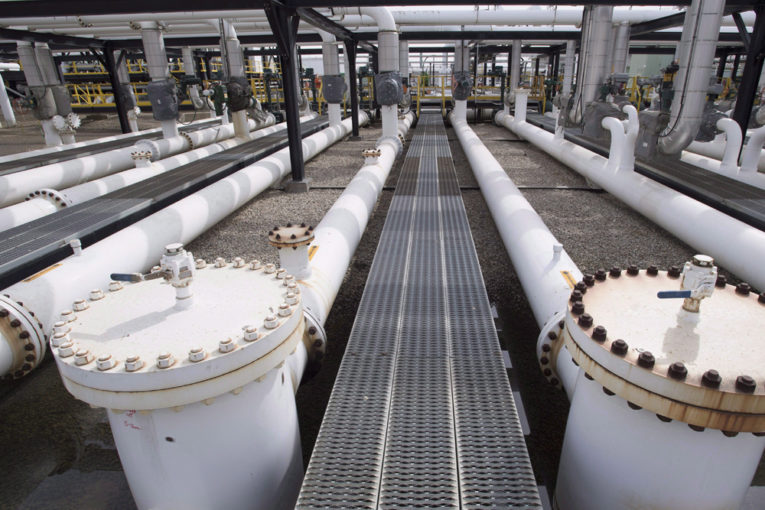
The National Energy Board is setting up a process to resolve future permitting issues between Kinder Morgan Canada Ltd. and provincial and municipal authorities on the Trans Mountain expansion project.
The NEB said Thursday that under the process, it will take about three to five weeks to reach a decision on future permitting disputes.
The regulator said that it still expects all sides to go through the permitting process in good faith, but the board will step in when necessary on permitting issues that affect NEB conditions on the project.
“This generic process will provide a measure of certainty regarding the regulatory tools available to resolve permitting disputes or disagreements in limited circumstances where Trans Mountain and provincial and municipal authorities are unable to do so,” the NEB said in a release.
Kinder Morgan Canada had asked for a way to resolve future disputes after encountering what it called significant delays on securing permits from Burnaby, B.C.
B.C. municipalities had made submissions against the proposal, with Chilliwack expressing concern that the company may use it as a pressure mechanism or as leverage against the city. Surrey said the motion is an attempt to unlawfully fetter, circumvent, and undermine the legislative scheme to the detriment of municipalities.
Outside supporters of the Trans Mountain project, including the Alberta and federal governments, supported the proposal as a way to address compliance oversight.
The NEB said it expects the process to be rarely used, and it would only step in for limited reasons such as when there’s lack of clarity as to whether Trans Mountain has achieved condition compliance.
Kinder Morgan Canada had asked that a standing panel be set up to hear the potential disputes, but the NEB said it would decide who would hear issues as they arise. The NEB also gave itself roughly double the time the company had requested for decisions to be made in the process.
The company said Wednesday that it estimated the Trans Mountain expansion project was a year behind schedule after encountering regulatory and permitting delays.
The project, which would nearly triple oil-shipping capacity from Alberta to the West Coast, faces significant opposition from numerous Indigenous groups, environmentalists and municipalities in British Columbia.
You can read more of the news on source
